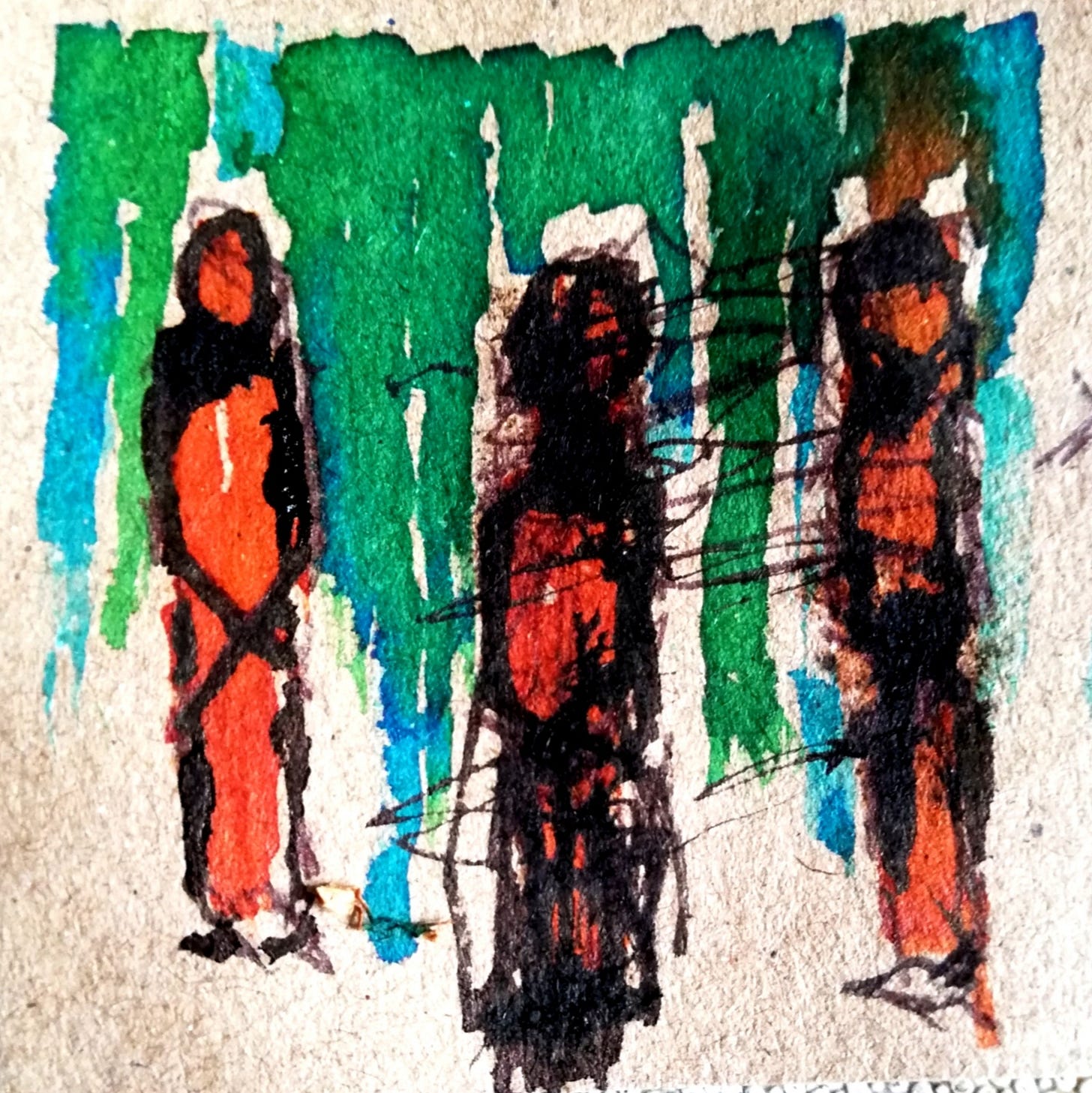Someone once told me I have a guilty look. I know what they mean. It's not a look of mischief so much as the look of someone who is never quite sure if they're in trouble or not.
I've always found it very unsettling to be at odds with anyone at all. I've tended to try, perhaps too hard, to be on good terms with everyone. This works well until it doesn't. Sometimes it all happens at once and I find myself becoming a problem to multiple parties for numerous and perhaps unrelated reasons. Sometimes it's because I am the bringer of unwelcome visions. Sometimes it is a tragicomedy of misjustice. And sometimes it’s just my wrongs coming back to me.
I'll not psychoanalyse myself too deeply here. I will say that I feel all this much more before my human neighbours than before the judgment seat of God. Upon reflection, I think this is partly because the position of the accused is fairly normative among characters of the biblical sort. I think biblical tropes tend to lean toward sympathy with the accused, more than the accusers.
Recently I’ve found myself feeling rather at odds with a number of parties - enough to cause considerable disquiet - and so I found myself thinking about all these characters; these archetypes of the accused, with their various stories, their degrees of guilt and innocence, and their wonderful galleries of different postures and responses, being stood there in the dock. Perhaps we can learn something about how to inhabit that most difficult of places with grace and peace,self awareness, and a little style.
The Grinning Miscreant
There is a scene in which that apostle who is loved and loathed in all imaginable directions is stood in chains before Felix, a governor of the colonising Roman powers. A serious-looking Roman attorney, Tertullus, makes a case against Paulos to the enthroned governor. Tertullus of course opens with the customary gushing and lengthy eulogy to Felix's wisdom and benevolence as colonising ruler over Paulos' homeland. And what is Paulos to say in response? What words can he find to compliment his oppressor? How can he hope to avoid a disastrous verdict if he's not willing to kiss the Roman eagle?
"I see you've been in the job a while," he says (my paraphrase). And with that he moves on to talk about whatever interests him, as a thinly veiled legal defense. Playful sincerity and grinning teeth behind every word.
Paulos spends the last third of the Book of Acts as a prisoner, passed from one party of important folks to another. No one's sure what to do with him, and he seems to almost enjoy the whole thing. He's very sly. With an off-hand comment he can set his jury at each other's throats. With a passing statement he can throw his armed guard into a panic, as though it were they who were in trouble. When he senses things aren't going his way, he says a word and has himself transferred to other more important captors. If he is held anywhere for any amount of time he soon has the whole place eating out of his hand. He is chaperoned from place to place under armed guard as though he were a dignitary. He finds himself far more powerful, more interesting and valuable to the world, when he is in chains as a trouble maker. He revels in being the accused.
This image reminds me of many things. One of them is the miscreant child who is always in trouble and grins all the while as they are passed from teacher to head teacher to parent and to teacher again. They're playing everyone off against everyone and no one knows quite what to do with them.
Paulos is a crafty fox, and yet we cannot escape the feeling that he actually likes his accusers. His sincerity is playful, but true. He doesn't despise them at all. He seems to call back to them, from some field beyond their laws and concerns. His unsolvability stands there in quiet judgment of the judges. Suddenly they look like the problem. It is they who are being tried. Never has someone in chains looked so free.
Here is a sly benevolence; a creative savvy; a trickster-ish kindness, which is, I suppose, made possible by standing on wholly other ground, wholly other concerns to the powers that be. I don't have much of this kind of sass. I wish I did. I salute it; kindly grinning miscreants everywhere.





This description of Paul is one that captures the trickster archetype quite well. It's the first thing that has had me interested in Paul in quite a while - an achievement, brother. I also adore the painting you've included - is it one of yours?
Standing on other ground. This is a question to ask myself, what ground am I standing on?